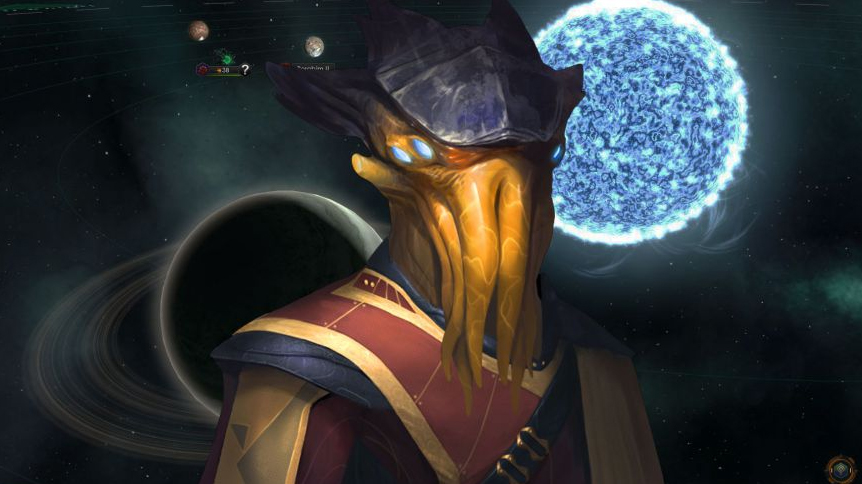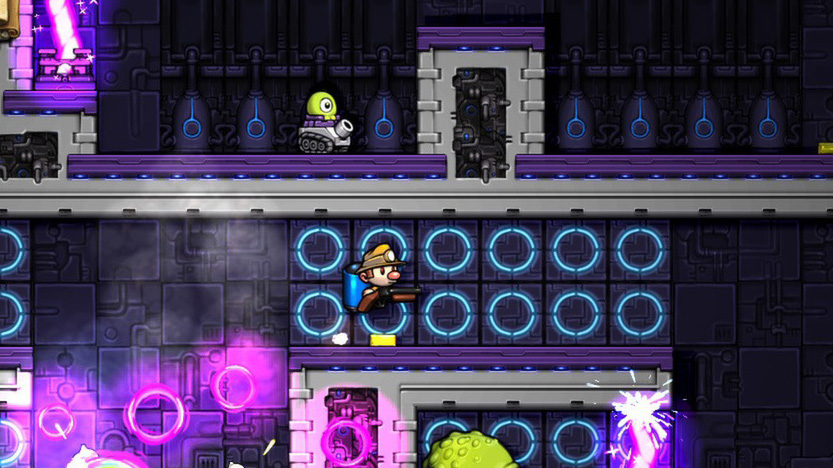How Spelunky is informing Paradox's next grand strategy game
"Let's bring the jetpack into grand strategy. I think we can do that," says Game Director Jon Shafer.

I'm at PDXCon in Stockholm, Sweden, talking to Jon Shafer about Spelunky. The former lead designer of Civilization 5 recently joined Paradox Development Studio to create a new grand strategy game, but he won't talk about it yet, despite my shrewd tactic of immediately demanding of him: "Tell me all about this grand strategy game you're working on. I want the name. I want all the details."
Naturally, Shafer won't tell me word one about his new game, and since those two sentences comprise my entire list of questions for him, we're talking about Spelunky instead. Luckily, Spelunky—in addition to being one of Shafer's favorite games—is actually relevant to the design of this mysterious grand strategy game he joined Paradox to develop. The idea for the game, he tells me, has been in his head for about five years, and Shafer's move from Civ developer Firaxis to Paradox has been in the works for almost that long, too.

Jon Shafer is a BAFTA-winning designer of Civilization 5, and now Game Director at Paradox Development Studio.
"Fred [Wester] and Johan [Andersson] and some other folks have been trying to get me to come to Paradox since, like, 2011," Shafer says. "And, like, every six months Fred would send me email like, 'Hey, how about now? Stockholm is lovely in June!' I would always tell him 'Would love to, but now is not the right time.'
Eventually, the time was right and Shafer decided he was ready for a change: Firaxis didn't seem like the right place to turn his new game idea into a reality.
"I spent three years [on] Civ 4, I spent three years on Civ 5, working way too many late nights and weekends and spending all of my energy that I could possibly muster on this one franchise. But when Civ 5 was done I wanted to kind of do new things, but there wasn't really that opportunity [at Firaxis]. And this is part of the issue with the triple-A space in some ways."

But it pushed things away from where Paradox had been. I want to basically do that, but even more.
Shafer saw how Paradox was growing and branching out, especially with its release of interstellar strategy game Stellaris, which represented a distinct change from Paradox games like Crusader Kings, Victoria, and Europa Universalis.
"[Stellaris is] still recognizably a Paradox Game. It's still real-time, it's still clearly within the vein of what Paradox as done before. But it pushed things away from where Paradox had been. I want to basically do that, but even more."
The biggest gaming news, reviews and hardware deals
Keep up to date with the most important stories and the best deals, as picked by the PC Gamer team.
Some of what Shafer wants to bring to his game with Paradox is what he calls "that roguelike flavor" seen in games like Spelunky, Binding of Issac (another of his favorites), and Don't Starve.
"And this is something I'm actually going to be pushing hard on probably in all of my future designs," he says, "regardless if it's grand strategy or anything else. I think having more asymmetry, having more variety, having cool exciting moments where you find... the thing! You know? In most games you don't find the thing, but this time you found the thing! And that changes the experience of playing the game in a dramatic way."
You can find plenty of 'things' while exploring in games like Civilization, of course, but Shafer says the discoveries, while they may be memorable, aren't terribly exciting.
"Oh, I found iron, that's good, I found oil, that's good. Oh, what can I do with the oil?" Shafer says. "It's not something where you're often surprised, in a way."
This brings us to the topic of finding something like the jetpack early on in a game of Spelunky. It's game-changing, at least for that particular session of the platformer. It's an exciting moment, a sudden advantage you apply to that session that can completely change the way you play.

"The challenge for me is finding a way to translate that in such a way that it doesn't just break the game," says Shafer. "You want those moments, you want those cool things that you can take advantage of, but you also don't want it to be like, well, it doesn't really matter what decisions you make because you found this or you didn't find that, and like, whatever, your decisions are irrelevant.
Let's bring the jetpack into grand strategy.
"So trying to find that balance between 'Wow there's this cool thing' and having a good arc to the gameplay that's consistent from game to game to make people want to play again... because a game of Spelunky can last a minute or thirty seconds, or whatever. The stakes are low, so if you find a jetpack or not, in a minute [you can] start a new game if you die."
Strategy games don't last a minute, or even an hour: they can stretch on for dozens of hours, so inventing the strategy equivalent of Spelunky's jetpack needs to be exciting without providing an advantage that makes the next twenty hours too easy. Still, Shafer thinks it can work.
"Let's bring the jetpack into grand strategy," he says. "I think we can do that. I think people will like that, I think it's something that will be a good way to spice up the grand strategy 4X market."

Chris started playing PC games in the 1980s, started writing about them in the early 2000s, and (finally) started getting paid to write about them in the late 2000s. Following a few years as a regular freelancer, PC Gamer hired him in 2014, probably so he'd stop emailing them asking for more work. Chris has a love-hate relationship with survival games and an unhealthy fascination with the inner lives of NPCs. He's also a fan of offbeat simulation games, mods, and ignoring storylines in RPGs so he can make up his own.

